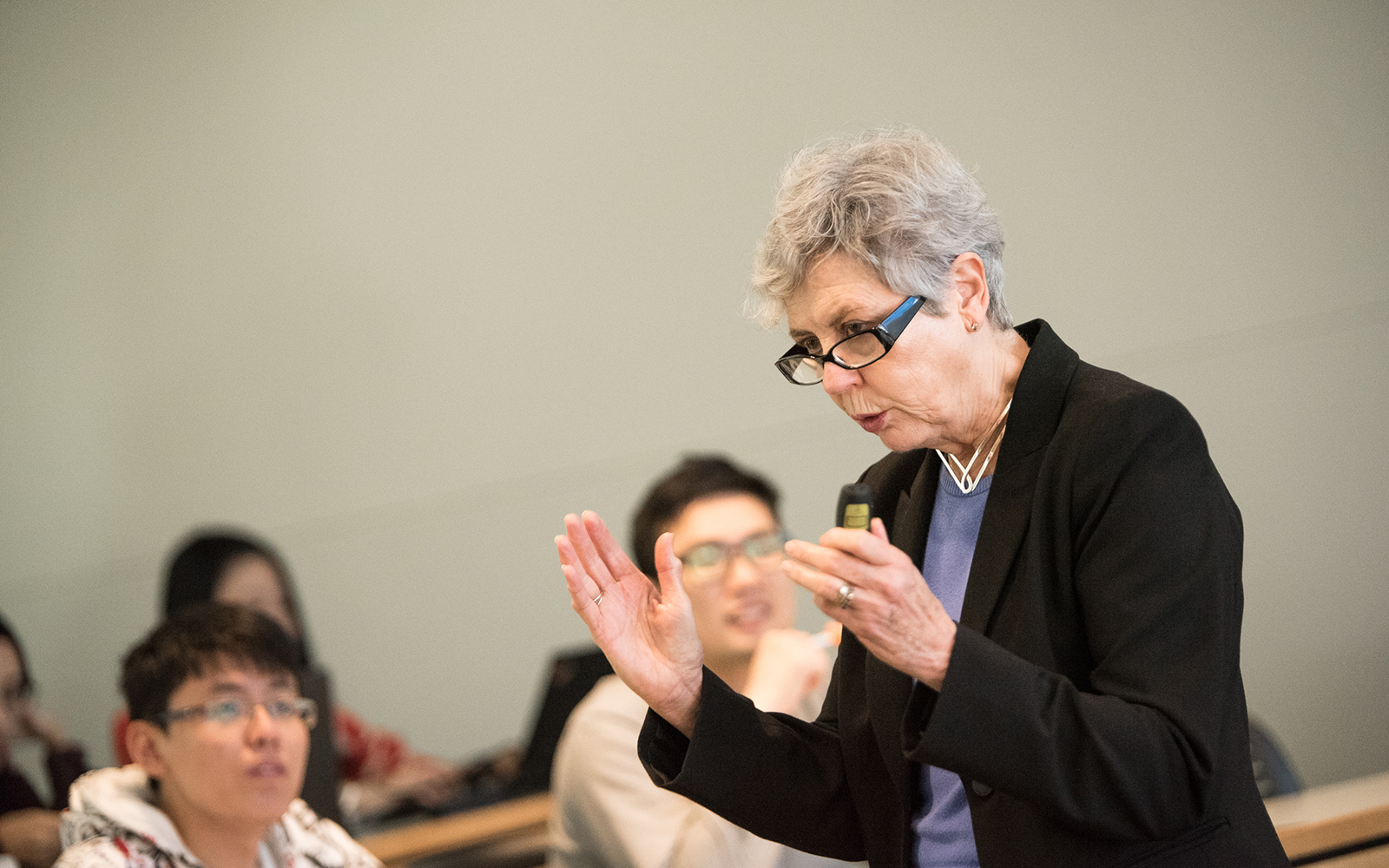
For novice writers, it is often difficult to accept constructive criticism and develop a willingness to edit and repeatedly revise their work.
Overcoming that reluctance is essential for Ph.D. students who plan to become professors, because their careers hinge on their ability to clearly define their research and present it in a concise and appealing way to editors at top academic journals.
“For future faculty members, being able to write is their bread and butter,” said Professor Emerita Susan Spiggle. “You can have all the best data in the world but if you can’t write clearly and define the importance of your work, it really doesn’t matter at all.”
Spiggle, who began teaching at UConn in 1982 and has served in a variety of leadership roles at the university, recently made a generous donation to the School of Business. Her gift is earmarked toward supporting business programs for Ph.D. students, particularly in writing and econometrics.
“I’m really attached to the university,” she said. “After serving in many different roles, I’ve developed a broader perspective. I wanted to give back to the university which has been very good to me.”
Spiggle first became affiliated with the University in 1968, when she enrolled as a Ph.D. student in sociology. She went on to teach at the University of Hartford for seven years. In 1982, she returned to UConn as a faculty member in the Marketing Department. Afterward, she also earned an MBA from UConn.
In addition to teaching marketing for 35 years, she also served as both head of the marketing department and interim head of the management department. She was the moderator for the University Senate for 10 years and served as Chair of the President’s Athletic Advisory Committee, something that her friends found amusing due to her limited interest in sports. Her husband, Tom Martin, has a Ph.D. in engineering and an MBA, both from UConn.
When the School of Business created a writing coach position several years ago, and a colleague recommended Spiggle for it, she jumped at the chance. As far as she knows, UConn is the only PhD program to offer a dedicated writing coach to its business students, and it is something they prize, Spiggle said. She is in awe of students’ determination, particularly those who speak English as a second language and are committed to becoming exceptional writers in their new language. She reads and edits research papers now on topics from accounting to consumer reactions and despite the topic or the individual, most are very attached to their work. “It’s like their baby,” she said.
But can everyone become a good writer? The answer is mostly yes, she said.
“Becoming a good writer requires a commitment. Not everyone is committed,” she said. “But everyone committed to writing has the potential to do that.”
Her role goes well beyond correcting grammar and perfecting punctuation, Spiggle said. “We talk about how to position an argument, how to draw in the reader, how comments and research topics benefit the field of study, how to make logical connections,” she said. “Our students know they can’t Tweet their way through the world!”
“I was always a stickler for good writing,” she said. “I had fabulous teachers in high school and they valued good speaking and great writing. I think the way that you become a good writer is to write often, get feedback and then re-write. Some people are prickly about having their work edited, but that is the way to improve,” she said.
Bo Ren, a Ph.D. student in accounting, has frequently collaborated with Spiggle to fine-tune his work. “Susan is a great mentor. She gave me many valuable comments about my research ideas,” he said. “Most importantly, she treats me like a friend. She is the person I feel very comfortable to talk about my research ideas. As an international student, I especially benefit a lot from her comments on my writings.”
Spiggle’s father, an engineer, encouraged her to take as much English and math as she could in school, something she credits for her ability to balance the logical and the creative. But Spiggle said the joy of her work comes from watching others thrive.
“Like many endeavors, academics want to reproduce themselves,” she said. “Mentorship is a core part of our work. Both the student and the adviser gain so much from that relationship. I just love to see young scholars budding.”